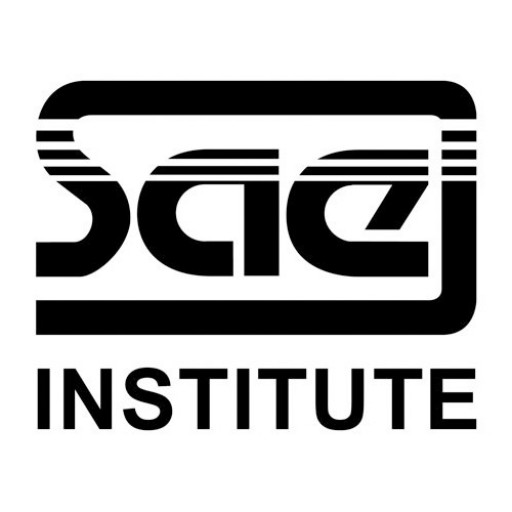Photos of university / #applyncstate
OBJECTIVES OF THE CONCENTRATION IN GAME DEVELOPMENT
The objectives of concentration are to:
- graduate skilled computer scientists with deep knowledge in the algorithms, processes and technologies used to make games
- balance training in the technologies of games with the same breadth in Computer Science instruction as all Computer Science students
- provide students with a a multi-disciplinary view of game creation by requiring specific courses from other disciplines that contribute to the process of game creation.
PROGRAM OF STUDY
Students take all courses required for the CSC major. Concentration course selection for Restricted and Other Electives is constrained to focus on specific courses directly related to game design and development. Specifically, all students pursuing the concentration must take both CSC 461, Computer Graphics, and CSC 481, Game Design and Development. Further, students must take either CSC 462, Advanced Graphics Projects or CSC 482, Advanced Game Development Projects. Students must select two additional CSC courses from the following list:
- CSC 411 Artificial Intelligence
- CSC 454 Human-Computer Interaction
- CSC 462 Introduction to Graphics
- CSC 482 Game Design and Development
- CSC 484 Building Game AI
- CSC 582 Computer Models of Interactive Narrative
Freshman Year - Fall Semester
| Courses | Credits |
|---|---|
| CH 101 & 102 General Chemistry 1 & Lab1,2 |
4 |
| E 101 Intro. to Engineering1,2 |
1 |
| E 115 Intro. to Computer Environments1 |
1 |
| ENG 101 Intro to Academic Writing1,2 |
4 |
| MA 141 Calculus 11,2 |
4 |
|
Semester Total Credits: |
14 |
Freshman Year - Spring Semester
| Course(s) | Credits |
|---|---|
| CSC 116 Intro to Comp. Java2 |
3 |
| *** *** Humanities/Social Science Elective3 |
3 |
| MA 241 Calculus II1,2 |
4 |
| PY 205 Physics I1,2 |
4 |
| PE 101-109 Health & Physical Fitness |
1 |
|
Semester Total Credits: |
15 |
Sophomore Year - Fall Semester
| Courses | Credits |
|---|---|
| CSC 216 Programming Concepts2 |
4 |
| CSC 226 Applied Discrete Mathematics2 |
3 |
| MA 242 Calculus III |
4 |
| PY 208 Physics II |
4 |
| PE *** Physical Education Elective |
1 |
|
Semester Total Credits: |
16 |
Sophomore Year - Spring Semester
| Courses | Credits |
|---|---|
| CSC 230 C and Software Tools |
3 |
| CSC 316 Data Structures |
3 |
| *** *** Humanities/Social Science Elective3 |
3 |
| MA 305 Elementary Linear Algebra |
3 |
| *** *** Basic Science Elective4 |
3 |
|
Semester Total Credits: |
15 |
Junior Year - Fall Semester
| Courses | Credits |
|---|---|
| CSC 236 Comp. Org. & Assem. Lang. |
3 |
| CSC 246 Operating Systems |
3 |
| CSC 333 Automata, Grammars, and Computability |
3 |
| ST 370 Probability & Statistics for Engineers |
3 |
| *** *** Humanities/Social Science Elective3 |
3 |
|
Semester Total Credits: |
15 |
Junior Year - Spring Semester
| Courses | Credits |
|---|---|
| CSC 326 Software Engineering |
3 |
| CSC 379 Ethics in Computing |
1 |
| CSC *** CSC Games Restricted Elect.5 |
3 |
| EC 205 Econ. or EC 201 or ARE 201 |
3 |
| ENG 331 Comm. for Engineering & Tech. |
3 |
| *** *** Games Restricted Elective8 |
3 |
|
Semester Total Credits: |
16 |
Senior Year - Fall Semester
| Courses | Credits |
|---|---|
| CSC 461 Computer Graphics |
3 |
| CSC 481 Game Development |
3 |
| *** *** Humanities/Social Science Elective3 |
3 |
| *** *** Humanities/Social Science Elective3 |
3 |
| *** *** Games Restricted Elective8 |
3 |
|
Semester Total Credits: |
15 |
Senior Year - Spring Semester
| Courses | Credits |
|---|---|
| CSC 4** Advanced Games Elective9 |
3 |
| CSC *** CSC Games Restricted Elect.5 |
3 |
| *** *** Humanities/Social Science Elective3 |
3 |
| *** *** Games Restricted Elective8 |
3 |
| CSC 492 Senior Design Project |
3 |
|
Semester Total Credits: |
15 |
Minimum hours required for graduation = 121.
The Bachelor of Science in Computer Science with a Concentration in Game Development at North Carolina State University requires students to complete a comprehensive set of coursework aimed at developing skills in game design, programming, and engineering. To earn the concentration, students must fulfill the university's core computer science foundational courses, including Introduction to Programming, Data Structures and Algorithms, Computer Architecture, and Software Engineering. Additionally, students are required to take specialized classes in game development topics such as Interactive Media, Computer Graphics, and Artificial Intelligence for Games. The program emphasizes hands-on experience, encouraging students to participate in projects like the development of a playable game prototype by the end of the degree.
Students must also complete electives that enhance their understanding of related disciplines such as user experience design, animation, and audio programming, which are crucial for creating engaging and immersive games. The curriculum includes practical courses in game engine usage, notably with popular engines such as Unity and Unreal Engine, allowing students to develop real-world skills. Furthermore, the program promotes interdisciplinary collaboration, often involving team projects to simulate industry environments. Internships are highly encouraged and sometimes required to provide industry experience.
In addition to technical coursework, students are encouraged to attend seminars, workshops, and participate in university-sponsored game development competitions. To graduate with the concentration, students must also complete a capstone project that demonstrates their ability to conceive, design, and implement a complete game or a significant component of a game. Throughout the program, students are advised to develop a professional portfolio showcasing their projects, which can be instrumental in securing employment after graduation. The program aims to produce graduates who are proficient in both the technical and creative aspects of game development, prepared to enter the gaming industry or pursue advanced study in related fields.
Financing studies for the Concentration in Game Development at North Carolina State University can vary depending on the student's residency status, choice of program enrollment (full-time or part-time), and availability of scholarships or assistantships. As a public research university, North Carolina State University offers a range of funding options for graduate students pursuing a Concentration in Game Development within relevant graduate degree programs, such as computer science or digital storytelling.
Tuition and fees are determined based on the student’s residence status; in-state students benefit from lower tuition rates compared to out-of-state students. Graduate students are encouraged to explore assistantships, which often provide comprehensive funding packages covering tuition and a stipend in exchange for research, teaching, or project-based work related to game development. These assistantships are typically awarded competitively and are limited in number, requiring applicants to demonstrate strong academic or professional backgrounds.
In addition to assistantships, students may qualify for scholarships offered by the university or external funding agencies. The university maintains a list of scholarships specific to graduate students in technology and digital arts disciplines, including those with an emphasis on game development. Some programs also offer fellowships or grants targeted at supporting research in game design, programming, and interactive media.
Students are advised to directly contact the university’s financial aid office for detailed information about current tuition rates, application procedures for assistantships and scholarships, and any fellowships that may be available. Furthermore, students often seek external funding options such as federal student loans, private scholarships from industry organizations, or sponsorships from game development companies interested in fostering new talent.
International students should also consider visa requirements and may have additional opportunities for funding through international student scholarships or specific programs that support international scholars. It is also beneficial for prospective students to attend informational sessions or webinars hosted by the university’s graduate school to learn more about financing options and the application process.
Overall, financing a concentration in game development at North Carolina State University involves a combination of institutional funding, external scholarships, and personal savings or loans. Prospective students should plan carefully and apply early to maximize their chances of securing financial aid. The university’s commitment to supporting students in digital and interactive media fields ensures that diverse funding opportunities are available, although competition can be intense. Therefore, early preparation and a strong application are essential to obtain financial support for studies in this innovative and rapidly evolving field.
The Concentration in Game Development at North Carolina State University offers students a comprehensive education in the field of video game design, development, and production. This program is designed to equip students with the technical skills, creative abilities, and industry knowledge necessary to succeed in the rapidly evolving gaming industry. The curriculum includes coursework in computer science, programming, graphics, animation, and interactive media, combined with specialized courses focusing on game design, storytelling, user experience, and game production. Students have opportunities to work on collaborative projects, develop portfolios, and participate in internships to gain real-world experience. The program emphasizes both technical proficiency and creative innovation, preparing graduates for careers as game designers, developers, programmers, or producers. Additionally, the university’s facilities and labs provide access to state-of-the-art software and hardware, fostering an environment for experimentation and innovation. Students are encouraged to participate in research projects, game jams, and industry partnerships, which enhance their practical skills and professional network. The program aims to produce well-rounded graduates who are capable of designing engaging and interactive games while understanding the business and marketing aspects of the industry. Programs like this at NC State University are often tailored to meet the demands of a growing industry, with curriculum updates reflecting current trends and technological advancements. The faculty members involved in this concentration are experts in their fields, providing mentorship and guidance to students. Overall, the Concentration in Game Development at NC State University is focused on cultivating technical expertise, creative thinking, and industry readiness among aspiring game professionals.







